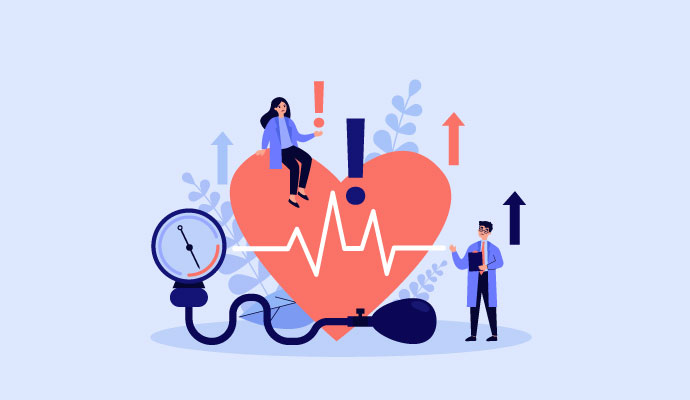Remote Tool Boosted Blood Pressure Management Amid Pandemic
A new study shows that a Mass General Brigham remote hypertension program improved blood pressure management during the COVID-19 pandemic.

Source: Getty Images
- Published in the Journal of the American Heart Association, a study assessing a Mass General Brigham remote hypertension program showed it was successful, as many patients involved achieved and maintained their blood pressure goals during the COVID-19 pandemic.
According to the Centers for Disease Control and Prevention (CDC), 47 percent of US adults have hypertension, a condition that took the lives of 670,000 people nationwide in 2020.
The COVID-19 pandemic led to decreases in the frequency of blood pressure assessments, as in-person healthcare restrictions resulted in care access barriers, the press release noted.
But a remote hypertension program from Mass General Brigham, launched in 2019, assisted patients in achieving and maintaining blood pressure goals during the pandemic. An integrated academic, non-profit healthcare system, Mass General Brigham includes 16 member institutions.
“There are over 110 million patients with hypertension in the U.S. During the pandemic, there was a dramatic decline in the number of patients who had their blood pressure measured, and we even saw a small nationwide increase in blood pressure,” said corresponding study author Naomi Fisher, MD, of the division of endocrinology, diabetes, and hypertension at Brigham and Women’s Hospital, in a press release. “Our remote management program at Mass General Brigham was already established pre-pandemic, so it was primed to help take care of our patients with high blood pressure. This program was able to provide care when patients needed it most, and demonstrated the efficacy of a team-based, entirely remote management system.”
The study evaluated data for 1,256 participants from the remote cardiovascular health program. Of these participants, 605 enrolled during the six-month period prior to the start of the pandemic in March 2020, and 651 participated during the six months after March 2020.
All patients received a home blood pressure monitor that captured a set of measurements. An evidence-based clinical algorithm then reviewed these blood pressure recordings, allowing for further guidance in pharmacological decision-making. Patient navigators, pharmacists, and supervising physicians collaborated to implement a treatment strategy for each patient.
Study results showed that among patients in the pre-pandemic and pandemic groups, the mean baseline home blood pressure was initially about 140/81 mm Hg. Blood pressure dropped by about 16/9 mm Hg in both groups among those who continued with the program.
Prior research shows that this proportion of a drop in blood pressure represents a 40 percent decline in relative risk for cardiovascular events and mortality, according to the study.
Further, researchers noted that patient engagement in the program grew over the course of the pandemic, with increases in the average number of home blood recordings and calls to patient navigators.
Researchers did, however, note several study limitations, including challenges with overall adherence to the program, with one-third of patients dropping out, and variation in patient onboarding.
This research aligns with prior studies showing the benefits of remote blood pressure management.
A study from November 2022 found that a 12-week remote support program improved blood pressure regardless of dietician support.
For the study, researchers enrolled two groups of patients in a remote support program delivered through web-based applications and telehealth. All participants in the study had high blood pressure and received lifestyle guidance from the American Heart Association. However, only one group engaged in weekly calls with a dietician.
Throughout the study period, researchers found similar reductions in 24-hour systolic blood pressure between the two groups. But the dietician support group experienced a more dramatic decrease in systolic blood pressure during sleep. This group also had greater levels of self-reported physical activity, along with improved dietary quality and more noticeable weight loss.
